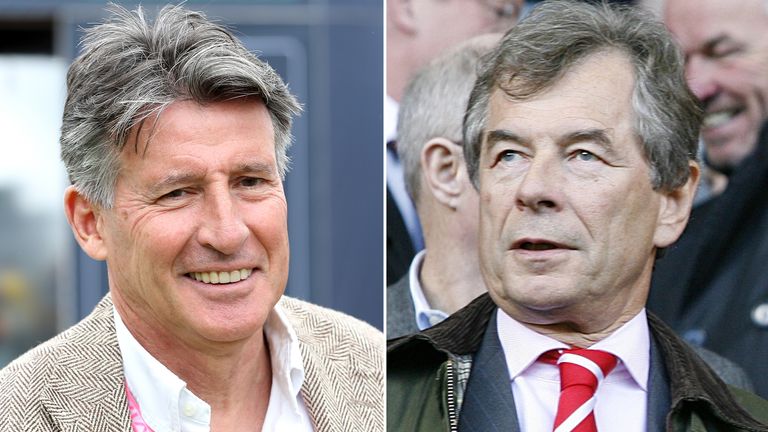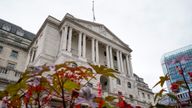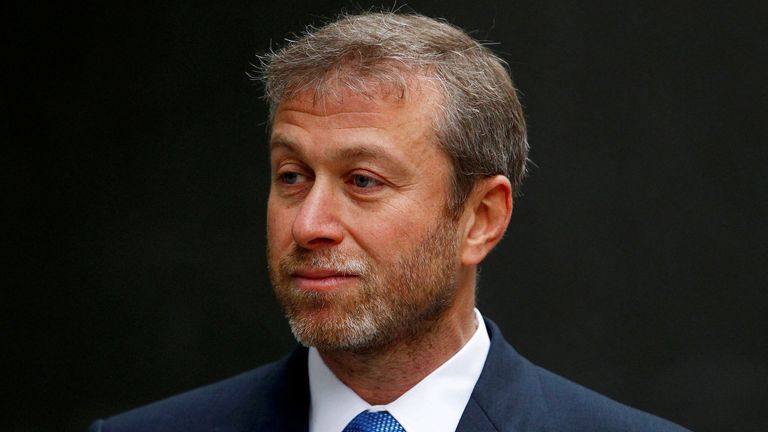Broughton lines up Wall Street and sports titans to back fully funded Chelsea bid
Sir Martin Broughton, the heavyweight British businessman, has enlisted support from major Wall Street and sports industry figures to back a takeover bid for Chelsea Football Club that is now fully funded.
Sky News has learnt that Sir Martin intends to submit a standalone offer for Chelsea before a deadline on Friday that will include funding from high net worth backers in the UK, Europe and the US.
Sources said on Thursday that the former British Airways chairman was being advised by Michael Klein, one of the world’s most successful investment bankers and an adviser to Sir Martin when he was parachuted in as chairman of Liverpool FC in 2010.
Sir Martin’s consortium is also working on his bid with Creative Artists Agency, the global talent management agency, and Evolution Media Capital, a sports advisory and financing partnership.
On Wednesday, it emerged that Lord Coe – who, like Sir Martin, is a long-standing Chelsea fan – had thrown his weight behind the prospective offer for Chelsea.
Sky News revealed Sir Martin’s involvement in the process, which has become the most keenly fought auction of a top-flight English football club in history, at the weekend.
One source described Sir Martin’s consortium as “a safe pair of hands” and said the involvement of Mr Klein, an American citizen who advised the then prime minister Gordon Brown on the banking crisis of 2008, was significant.
Their work together on Chelsea has been underway for weeks but has emerged less than 36 hours before a bid deadline set by Raine, the adviser to Chelsea owner Roman Abramovich.
Sir Martin, who played a key role rescuing Liverpool from a bitter boardroom battle more than a decade ago, orchestrated the sale of Liverpool to Fenway Sports Group, which ushered in the most successful period in the Reds’ recent history.
His bid is expected to reserve an equity stake in Chelsea for supporters – a move that would be likely to win government backing as it prepares to respond to former sports minister Tracey Crouch’s recent review of football governance.
Sir Martin, who attended his first match at Stamford Bridge in 1955, said on Saturday: “There’s a real need to change everyone’s mindset. There’s too much emphasis on Roman as the legal owner and not enough on the Ukrainian victims – who to all intents and purposes are the beneficial owners – and the fans who are the emotional owners.”
He added that the government “must prevent the club going into administration”.
“That would destroy at least £500m of value, which means £500m less going to the victims of the war.
“Surely, after all the brilliant efforts of the British public in raising some £200m in donations, no government wants that on their hands as an unintended consequence of their actions,” he said.
The field of bidders for Chelsea is starting to coalesce around a handful of consortia, including one – revealed by Sky News this week – comprising the owners of the Chicago Cubs baseball team and the hedge fund billionaire Ken Griffin.
Other credible parties include a bid led by the LA Dodgers part-owner Todd Boehly; the British property developer Nick Candy; and Woody Johnson, the former US ambassador to the UK.
Mr Candy’s bid includes the former Chelsea player-manager Gianluca Vialli as an adviser, Sky News revealed on Wednesday.
Oaktree Capital, the former Apollo executive Josh Harris, a Saudi Arabia-based media company and Tilman Fertitta, owner of the Houston Rockets NBA franchise, have also been linked to potential bids with varying degrees of credibility.
The Premier League has now disqualified Mr Abramovich from being a director of Chelsea, but has said the move would not affect players’ ability to train or fulfil the club’s fixtures.
The government has also amended a licence which allows Chelsea to continue operating, increasing the sum it can spend on each home match from £500,000 to £900,000 and permitting the club to receive and spend income from broadcast rights and prize money.
Last week, Chelsea’s corporate credit cards were frozen by Barclays as the British bank sought to clarify the implications of the sanctions against Mr Abramovich, deepening the sense of anxiety surrounding the club’s finances.
Chelsea was plunged into a row with Middlesbrough, the club’s opponents in the FA Cup quarter-finals this weekend, after requesting that the match be played behind closed doors for reasons of “sporting integrity”.
The request was rapidly withdrawn after a fierce backlash from across football and Westminster.
A rapid sale is seen as essential if Chelsea is to remain solvent and therefore retain the nucleus of a playing squad which has become established as one of Europe’s most successful under Mr Abramovich’s ownership during the last two decades.
The government has been clear that none of the proceeds from a takeover could flow to the Russian-born billionaire.
The cluster of American sports billionaires circling Chelsea underlines the extent to which the English Premier League has become a magnet for financiers from across the Atlantic during the last 20 years.
Arsenal, Liverpool and Manchester United have all been acquired by US-based businessmen during that period, and a significant number of other top-flight clubs also have American backing.
Last season’s Champions League-winners have been thrown into disarray by Russia’s war on Ukraine, with Mr Abramovich initially proposing to place the club in the care of its foundation and then formally putting it up for sale.
Mr Abramovich had initially slapped a £3bn price tag on the Stamford Bridge outfit, with the net proceeds being donated to a charitable foundation set up to benefit the victims of the war in Ukraine.
The value of the bids to be tabled on Friday remains unclear, however.
Last week, Chelsea sponsors such as Three UK, the mobile telecoms network, and Hyundai, the Korean car-maker, announced that they were suspending their association with the club, which was also banned from opening its retail outlets or selling new match tickets to fans.
Whoever buys the club will require the government’s consent in the form of a special licence as well as the approval of the Premier League under its fit and proper ownership test.




